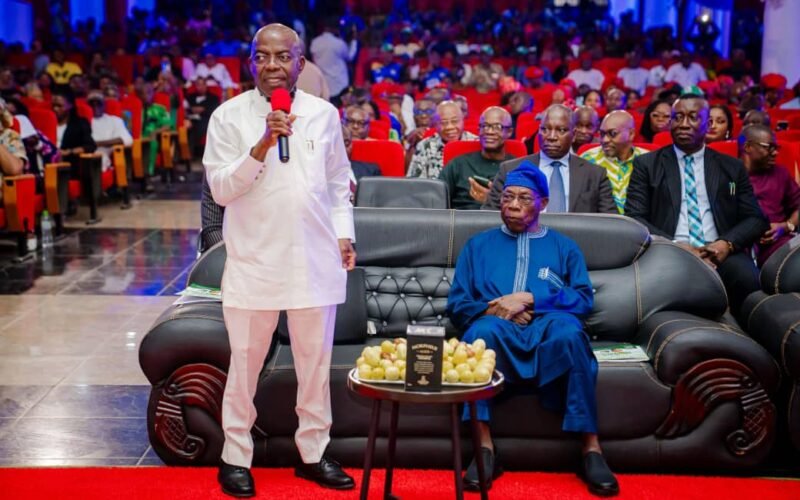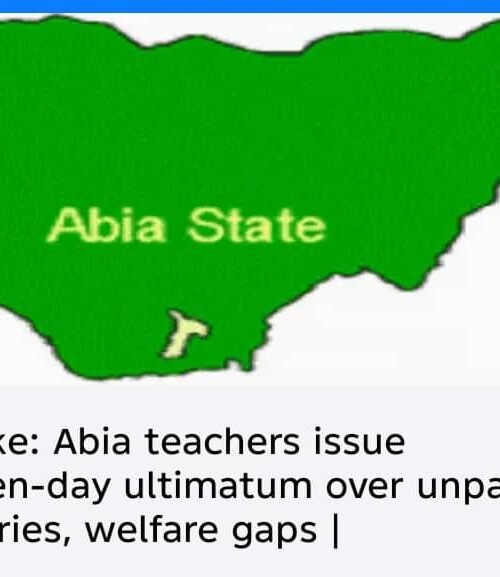A Rebuttal to Baseless Accusations and Myopic Detractions
It is with profound disdain that one must address the specious allegations and febrile invectives hurled against His Excellency, Governor Alex Otti, a leader whose governance is demonstrably anchored in transformative progress rather than the petty politicking of those who mistake cacophony for discourse. To indulge the delusions of certain individuals—who, in their intellectual paucity, conflate partisan machinations with statesmanship—would be to dignify the absurd. Yet, for the sake of intellectual rigour and the sanctity of factual discourse, a measured demolition of these baseless assertions is warranted.
The Empirical Foundation of Governance
The contention that Governor Otti’s administration is “lawless” or “dictatorial” collapses under the weight of empirical evidence. Over 24,651 hours of meticulous fieldwork across Abia North, Central, and South senatorial zones—conducted by a consortium of 2,618 field experts—paints an irrefutable portrait of a leader delivering tangible development. Infrastructure revitalization, healthcare reforms, and educational advancements are not abstract concepts here; they are lived realities for Abians. To dismiss these achievements as incidental or fraudulent is to insult the collective intelligence of a populace witnessing unprecedented progress.

Governance, by its nature, is an imperfect science—a truth acknowledged even by his supporters. Yet, to accuse a leader who is demonstrably “stretching himself” to the limits of his capacity of “political sacrilege” is not merely hyperbolic; it is a grotesque distortion of reality.
On the Labour Party and the Poverty of Partisan Pedantry
The histrionic fixation on internal party dynamics—a domain often fraught with the opacity and intrigue typical of political entities—betrays a myopic obsession with form over substance. To reduce Governor Otti’s legacy to intra-party squabbles is to engage in a deliberate act of intellectual dishonesty. The Labour Party’s constitutional nuances, while worthy of legal scrutiny, pale in significance when juxtaposed against the existential imperatives of governance: delivering services, restoring dignity, and catalysing development.
Let it be stated unequivocally: Governance is not synonymous with party administration. The former demands vision, sweat, and accountability to the people; the latter often descends into bureaucratic esoterica. To suggest that Governor Otti’s focus on the former constitutes a “coup” against the latter is to prioritize partisan pedantry over human progress—a stance both morally bankrupt and logically untenable.
The Fallacy of “Legitimacy” in the Face of Progress
The tiresome refrain regarding the “legitimacy” of certain party organs—while perhaps legally pertinent—rings hollow when wielded as a cudgel against a government delivering measurable results. Political legitimacy, in its truest sense, derives not from procedural minutiae but from the consent and contentment of the governed. By this metric, Governor Otti’s mandate is unassailable. Those who seek to undermine it through legalistic sophistry expose themselves as agents of stagnation, clinging to process as a substitute for purpose.

Conclusion: The Poverty of Detractors’ Imagination
To the purveyors of these jejune accusations, we issue not merely a rebuke but a challenge: ascend from the mire of petty conspiracy and engage with the substantive issues of governance. The people of Abia—whose lives are being uplifted through policies of inclusion and innovation—are not swayed by the shrill cries of those who mistake obstruction for principle.
Governor Otti’s trajectory is one of relentless progress, a narrative validated by data, lived experience, and the silent verdict of history. Let it be known that no amount of procedural hand-wringing or partisan hysteria can obscure the luminosity of results. Those who persist in their delusions do so not as custodians of principle, but as court jesters of a bygone era—irrelevant, cacophonous, and destined for the footnotes of history.
Dr Chukwuemeka Ifegwu Eke writes from Yakubu Gowon University Nigeria







